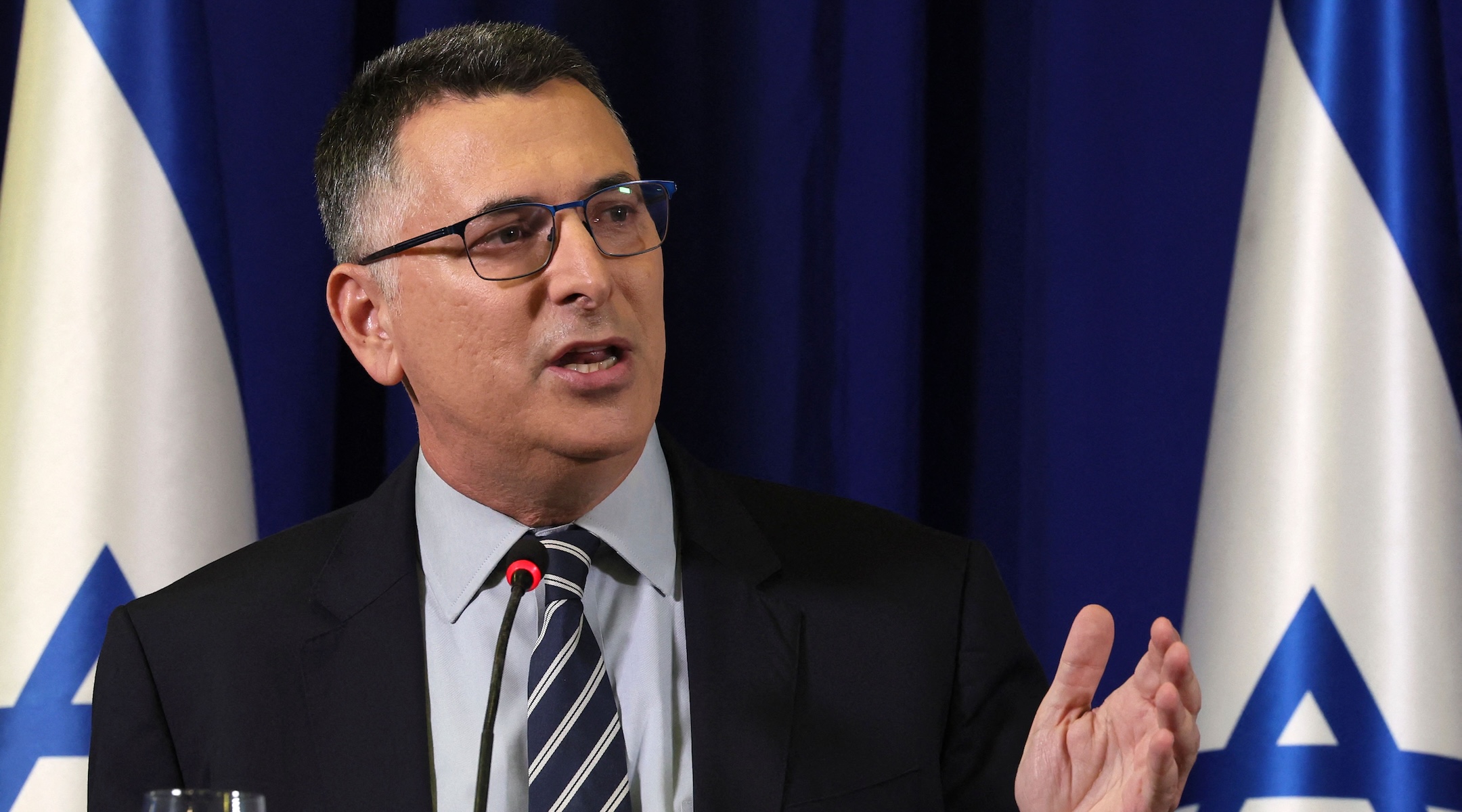Facing blowback, Israel’s foreign minister defends siding with Russia at the UN
Gideon Saar called Russia the “aggressor” and said Israel voted “no” on the U.N. resolution to support the American push for an end to the war

Israel’s new foreign minister, Gideon Saar, in a photo from a speech he gave in the Israeli city of Ramat Gan, July 10, 2022. (Jack Guez/AFP via Getty Images)
(JTA) — In the two days since Israel joined the United States to vote against a United Nations resolution condemning Russia’s invasion of Ukraine, it’s faced more than a little backlash.
Now, the country’s foreign minister, Gideon Saar, has said the vote was a bid to align Israel’s stance with the efforts of its closest ally, the United States, to bring an end to the three-year war — in part by performing an about-face in American policy on Ukraine. Saar said that Israel still views Russia as the “aggressor” in that conflict.
Saar’s statement comes after a wave of criticism. Bret Stephens, the New York Times columnist and consistent defender of Israel, called the vote “vomitous” in a piece headlined “America’s Most Shameful Vote Ever at the U.N.”
Rep. Eric Swalwell, the California Democrat, tweeted that the group of countries voting “no” — which also included North Korea, Belarus and Hungary — was the latest iteration of an “Axis of Evil.”
In Israel, the news has been overshadowed by the funeral of Shiri, Kfir and Ariel Bibas on Wednesday and the impending release of the bodies of four more Israeli hostages later in the day. But some liberal activists, including former center-left lawmaker Ksenia Svetlova, have slammed the decision. Svetlova, who was born in Russia, tweeted that Israel had “lost its moral compass.”
Israel had previously supported Ukraine in U.N. votes, though it has also sought to maintain relations with both sides — partly due to Russian forces’ presence near Israel’s border.
But in an interview with Politico, Saar said Israel voted “no” to support the American push for an end to the war — and that Israel hadn’t changed its views on the conflict. The Trump administration is flipping U.S. policy on the war by placing diplomatic and economic pressure on Ukraine while growing closer to Russia.
“We voted with the Americans and I do believe that Russia is the aggressor,” Saar said. “We haven’t changed our mind, but we thought it is right to give a chance to the initiative of America to try to end this war and solve it by peaceful means.”
The vote comes as Israel is working with the United States on another high-stakes peace negotiation — over Israel’s war against Hamas in Gaza and the release of Israeli hostages. The initial phase of a ceasefire that began last month is due to expire next week, and talks are ongoing over whether it will extend past that time.














